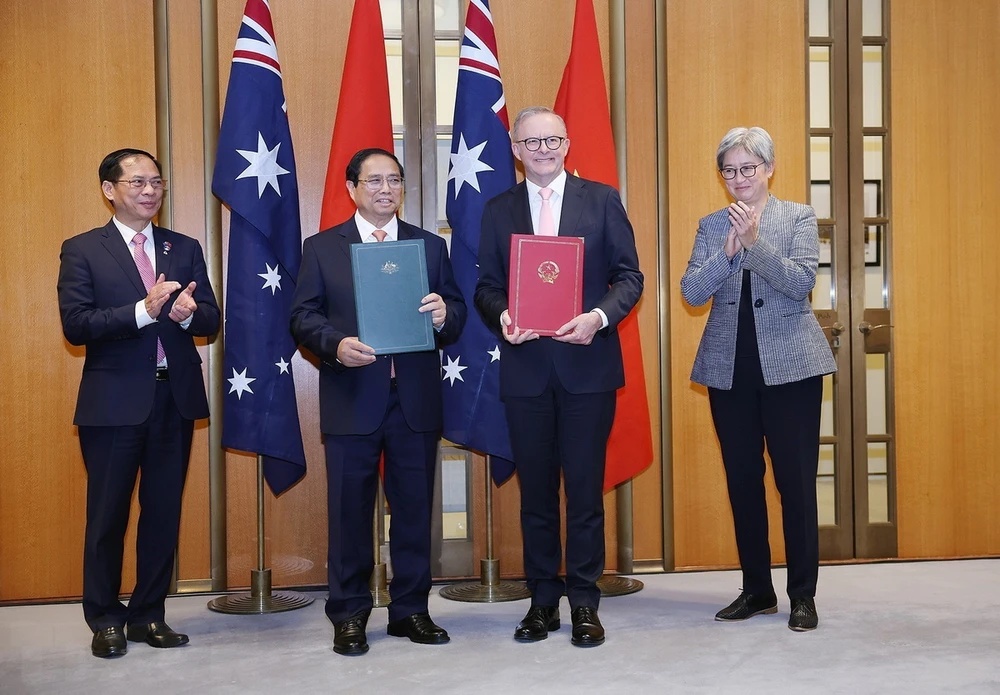
Prime Minister Pham Minh Chinh and a high-ranking Vietnamese delegation have just had a very successful official visit to Australia.
During this visit, the two sides issued a Joint Statement on upgrading relations to a Comprehensive Strategic Partnership between Vietnam and Australia.
On this occasion, VNA respectfully introduces the article: “Vietnam-Australia Comprehensive Strategic Partnership: Expanding Trust, Building Vision” by Dr. Vu Le Thai Hoang, Director of the Institute for Strategic and Diplomatic Studies, Diplomatic Academy, with analysis and comments clarifying the meaning and connotation of this important development.
Here is the content of the article:
The establishment of the Vietnam-Australia Comprehensive Strategic Partnership framework during the recent official visit to Australia by Vietnamese Prime Minister Pham Minh Chinh is the result and natural and logical development of 50 years of building and developing relations, an effort to deepen and expand strategic trust, and together contribute to building a new vision for the region.
50 years of mature relationship
Since establishing diplomatic relations in 1973 and upgrading to Strategic Partnership in 2018, the relationship between the two countries has witnessed strong, comprehensive, and strategic developments in all fields.
Typically in the economic-trade-investment field, Vietnam has emerged as a dynamic economy in Asia with a rapidly growing market and competitive workforce.
Two-way trade turnover is expected to reach US$13.8 billion by 2023, making Australia Vietnam's 10th largest trading partner, while Vietnam is Australia's 7th largest trading partner.
Investment relations between the two countries have also flourished and still have much potential, with nearly 600 Australian investment projects in Vietnam, total investment capital reaching more than 2 billion USD and Vietnam's investment in Australia reaching 600 million USD.
Australia has always been one of the largest bilateral grant aid partners for Vietnam, with ODA capital reaching AUD 92.8 million per year in the 2022-2023 period.
Besides, people-to-people exchange also plays an essential role in strengthening the friendly relations between the two countries.
The Vietnamese community in Australia currently numbers about 350,000 people, making a very positive contribution to the local socio-economic development and becoming an important bridge, helping to enhance mutual understanding of culture and economic cooperation between the two countries.
In recent years, Australia has become one of the most popular destinations for Vietnamese students, with more than 32,000 Vietnamese students and researchers in Australia. The two countries also share and cooperate effectively in international and regional forums, especially in ASEAN and Mekong sub-region cooperation.
In general, as stated in the Joint Statement of March 7, the friendship and cooperation between the two countries have developed steadily and comprehensively on the basis of strategic trust and mutual understanding, consolidated through the mutual complementarity of the two economies, the similarity of interests and the deep connection between the two peoples.
Deepening and expanding strategic trust
The Joint Statement of March 7 on the establishment of the Vietnam-Australia Comprehensive Strategic Partnership framework is the result and a natural and reasonable development of the past 50 years, in line with the common needs, interests and aspirations of the two countries. This is the most important framework in the foreign policies of the two countries.
Vietnam has the opportunity and conditions to deepen its relationship with Australia, a strategically important partner, in an effective and substantive manner, practically serving the development goals, maintaining a peaceful and stable environment, enhancing the country's prestige and position as in the spirit of the Resolution of the 13th National Party Congress.
For Australia, it is an opportunity to further strengthen relations with Vietnam, one of the leading partners in the region, thereby strengthening relations with ASEAN and countries in the region in general, taking advantage of new cooperation opportunities to enhance Australia's position and role in the region.
Like any other relationship, the upgrade helps the two countries strengthen political trust and mutual understanding; it will create positive momentum, enhance consensus in each country, create conditions to mobilize and focus resources on cooperation priorities that are mutually beneficial to both sides, especially in economics, science and technology, sustainable development, for the benefit of the people of the two countries, for peace, stability and development in the region and the world.
It can be seen that the 6 priority areas of the Comprehensive Strategic Partnership framework demonstrate expectations for further development in both quality and quantity compared to the 5 priority areas of the 2018 Strategic Partnership framework.
The most prominent is the spirit of cooperation for rapid and sustainable development, economic connectivity, scientific and technological cooperation, innovation, digital transformation, and green transformation. This can be considered one of the high priorities and strategic driving forces of the bilateral relationship.
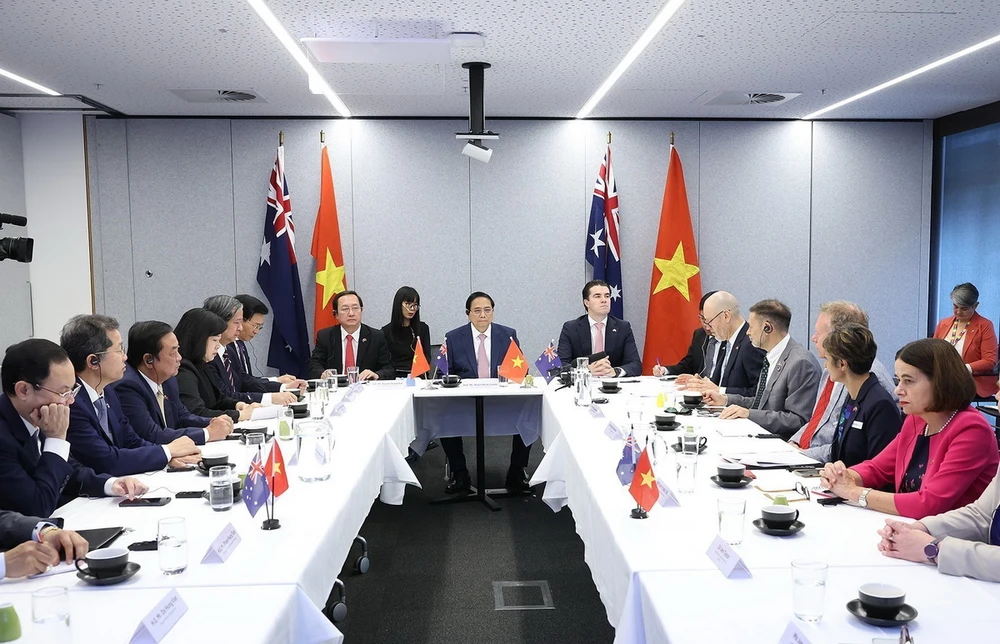
In addition, in terms of defense and security, the two sides will expand cooperation in defense industry, maritime security, information sharing and intelligence.
These cooperation contents are all mentioned within the cooperation framework between Vietnam and many different partners, which is a continuation of the Strategic Partnership framework established in 2018 and continues to be promoted with the sole purpose of contributing to peace, stability, security, and safety of the region and the world because transnational crime, cybercrime, terrorism, illegal migration, maritime security, etc. continue to be major challenges for the international community. Therefore, these cooperation activities cannot be considered as alliances or associations that harm the interests of any third party.
The establishment of the Comprehensive Strategic Partnership framework with Australia and six of the world's leading powers and Vietnam's leading partners (including China, Russia, India, South Korea, the United States, and Japan) once again strongly affirms the correctness and is an important and outstanding result of Vietnam's foreign policy of independence, self-reliance, peace, cooperation, development, diversification, multilateralization, and the "four no's" defense policy.
That result, together with proactively and actively promoting relations with neighboring countries, regions, major and important partners, and traditional friends, has consolidated the open and favorable foreign affairs situation, contributing to maintaining a peaceful and stable environment for development, promoting the realization of development goals to 2030, vision 2045 of the 13th National Party Congress, and enhancing Vietnam's position and prestige in the international arena.
Looking more broadly at the regional and international context with many complex, multi-dimensional, and unpredictable shifts and fluctuations, leading to a decline in strategic trust between countries and towards multilateralism, regional and global governance institutions, and international law, efforts to strengthen strategic trust between Vietnam and Australia as well as with other partners are not only bilateral in scope but also contribute to replicating "success stories," creating spillover effects, contributing to restoring and strengthening strategic trust in international relations, for peace, stability, cooperation, and sustainable development.
Building a shared vision for the region
The view by some of the Indo-Asia-Pacific region as simply an “arena” of major powers or a geopolitical space for power competition is not conducive to the common desire for comprehensive security, sustainable, inclusive, self-reliant, and people-centered development.
Without peace and stability, there are no conditions or resources for sustainable development.
The principles of sharing a common vision for the region in the 7/3 Joint Statement are also universal principles in international relations and international law reflected in the United Nations Charter, the ASEAN Outlook on the Indo-Pacific (AOIP) and the Melbourne Declaration commemorating 50 years of ASEAN-Australia relations.
That is the common aspiration, the “new story” that countries want to tell to convey the message of a peaceful, stable, self-reliant and prosperous region, respecting international law, actively engaging in dialogue and building trust, reducing the escalation of tensions, and taking positive steps to maintain an environment that prevents conflicts.
By promoting a new vision of the Indo-Asia-Pacific region as a shared home for diverse nations living together peacefully in the spirit of mutual respect and international law, Vietnam and Australia, together with their partners, can foster a sustainable and equitable future where all nations, large and small, have a voice and the right to develop and prosper./.
Source


![[Photo] Magical moment of double five-colored clouds on Ba Den mountain on the day of the Buddha's relic procession](https://vphoto.vietnam.vn/thumb/1200x675/vietnam/resource/IMAGE/2025/5/9/7a710556965c413397f9e38ac9708d2f)
![[Photo] Prime Minister Pham Minh Chinh chairs a special Government meeting on the arrangement of administrative units at all levels.](https://vphoto.vietnam.vn/thumb/1200x675/vietnam/resource/IMAGE/2025/5/9/6a22e6a997424870abfb39817bb9bb6c)




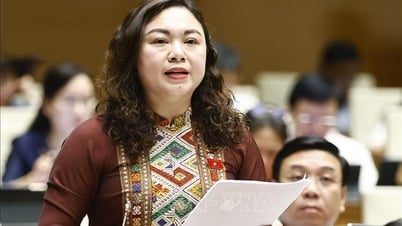
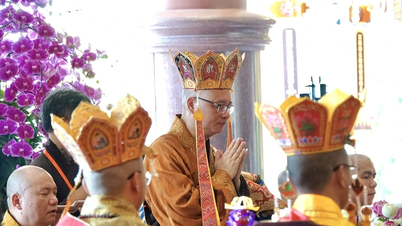
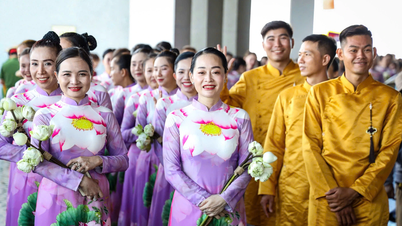


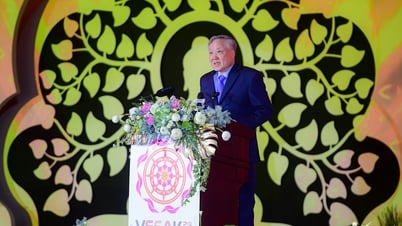




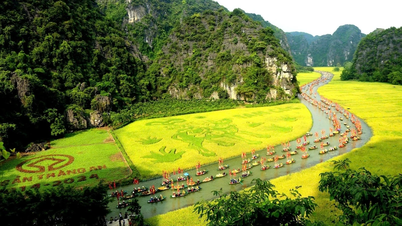

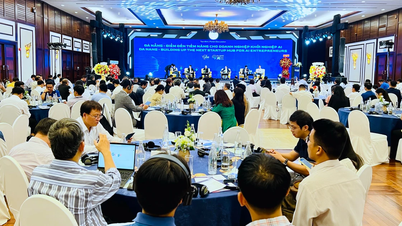

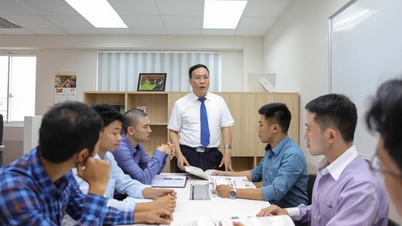
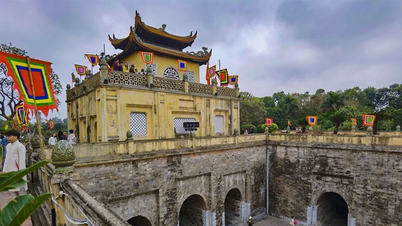



































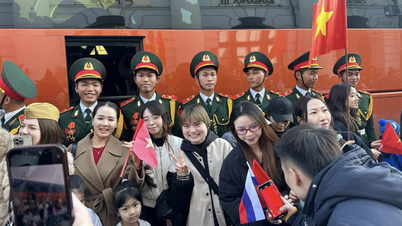









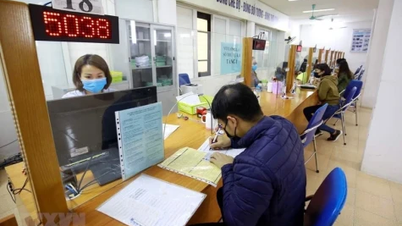



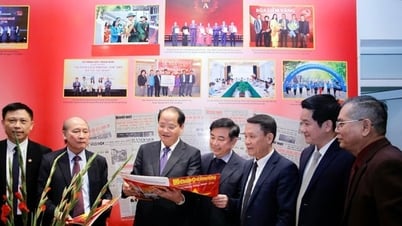

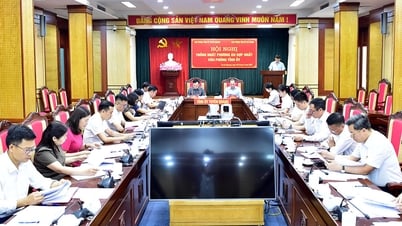

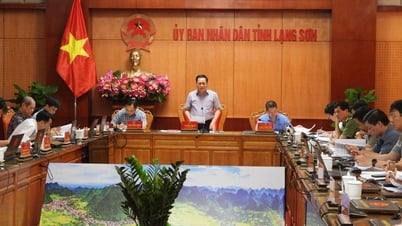














Comment (0)